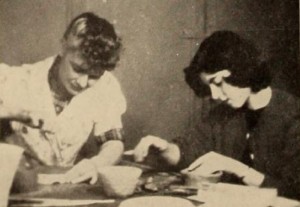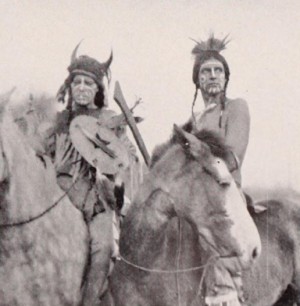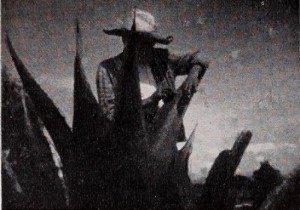"Recessional is a bit of animation drawn directly on a piece of white film using a variety of colors and set to music by the Beatles" PSA Journal, Aug. 1967, 37.
"This picture was made with indoor lighting and showed a very consistent photography." American Cinematographer, Dec. 1934, 377.

"A joint project of the members of the Motion Picture Photography Class of the Westchester Workshop, in White Plains, N. Y., Recreation Handmade is notable for its evenness of camera work. It presents in a naturally episodic fashion various handiwork classes available to children and adults of the community. If you like to work with your hands, this film will make you eager to enroll in one of the many activities offered — which, of course, is the purpose of its production. A rather full commentary describes how the courses work. Walter Bergmann, as instructor of the motion picture course, proves with his pupils' film that practical movie making can be taught — and taught well." Movie Makers, Dec. 1949, 470-471.
"Did any of us ever stop and think about the journey of a checker and that might be left in the street? Where would it travel? This red checker was assisted by the rain and it is carried in the storm drain and on into the stream and lake. We watch its excursion and constantly wonder where it will go. Don Jones shows us the travels of this red checker" PSA Journal, Oct. 1962, 36.

"'Red Clouds Rides Again,' the 8mm picture by Dr. Loscher which was given first prize, was based on a poem that dealt with the pioneers crossing the desert. Its main action had to do with a wagon train being attacked by Indians. The manner in which Dr. Loscher handled this sequence would have done credit to a studio production. With only one wagon, three horses and six people at his command, he made it look like a production employing more in the way of properties and talent. His angles, his composition and his cutting are things for every amateur to observe. His story could have easily become hackneyed by poor cutting and editing, but he kept it moving at a fine tempo." American Cinematographer, Jan. 1936, 24.
"An unusual experiment in form, motion and color. It was obtained by filming light patterns created on a translucent screen. The use of spotlights, reflectors, prisms, color filters and various home made gadgets, plus a background of organ music provides an interesting departure from conventional filming." PSA Journal, Dec. 1955, 35.

"In Reflections, Henry E. Hird has followed the intelligent practice of revising footage shot when film was more plentiful, with the result that he has created a new and interesting synthesis by editing. On a winter evening, a man reflects on the joys and adventures of a past summer. Of an athletic disposition, he has swum, sailed and hunted. Interested in wild life, he has observed and filmed birds. From time to time, he adjusts a radio, to find music that expresses the moods of his reverie. Finally, he turns off the radio, the musical accompaniment ceases and the film ends in silence. With excellent cinematography and with a nice editorial sense, Mr. Hird has gathered interesting events into an entertaining whole." Movie Makers, Dec. 1944, 496.

"Alan Probert has confined his study of Mexico to the primitive Otomi Indians. With startling clarity and a fine cinematic eye for detail, he presents the tribal group in a series of sketches that reveal the age old customs of their forefathers still in daily use — sowing and reaping, spinning and weaving, trading and worshipping. Remnants Of The Past is an expertly filmed factual account of the subject, which would have gained considerably from greater unity and a stronger ending." Movie Makers, Dec. 1948, 494.
"Among the films awarded honorable mention is Remote Control, by Louis W. Bleser, ACL, which gives a fine cinematic exposition of the activities of a train despatcher, by means of an unusually well equipped miniature railway system. Here the technical problem is especially important, calling for closeup studies of the first quality, the aim being so to light and photograph the subject that there would be a semblance of realism. In effecting this result, the use of well chosen titles and fine editing played no small part. Such a film as this upholds the maxim that "cinematics begin at home." " Movie Makers, Dec. 1933, 522.
Total Pages: 203